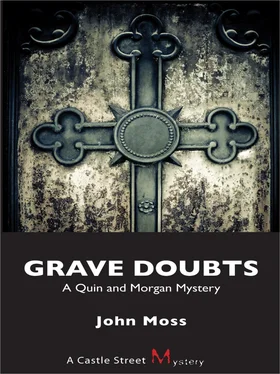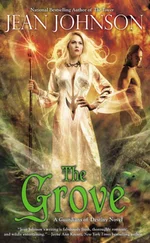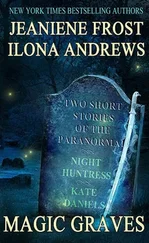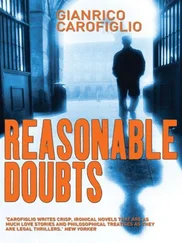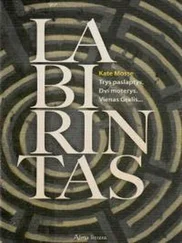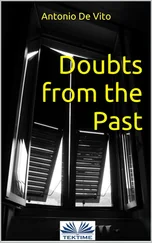John Moss - Grave doubts
Здесь есть возможность читать онлайн «John Moss - Grave doubts» весь текст электронной книги совершенно бесплатно (целиком полную версию без сокращений). В некоторых случаях можно слушать аудио, скачать через торрент в формате fb2 и присутствует краткое содержание. Жанр: Криминальный детектив, на английском языке. Описание произведения, (предисловие) а так же отзывы посетителей доступны на портале библиотеки ЛибКат.
- Название:Grave doubts
- Автор:
- Жанр:
- Год:неизвестен
- ISBN:нет данных
- Рейтинг книги:4 / 5. Голосов: 1
-
Избранное:Добавить в избранное
- Отзывы:
-
Ваша оценка:
- 80
- 1
- 2
- 3
- 4
- 5
Grave doubts: краткое содержание, описание и аннотация
Предлагаем к чтению аннотацию, описание, краткое содержание или предисловие (зависит от того, что написал сам автор книги «Grave doubts»). Если вы не нашли необходимую информацию о книге — напишите в комментариях, мы постараемся отыскать её.
Grave doubts — читать онлайн бесплатно полную книгу (весь текст) целиком
Ниже представлен текст книги, разбитый по страницам. Система сохранения места последней прочитанной страницы, позволяет с удобством читать онлайн бесплатно книгу «Grave doubts», без необходимости каждый раз заново искать на чём Вы остановились. Поставьте закладку, и сможете в любой момент перейти на страницу, на которой закончили чтение.
Интервал:
Закладка:
“Now, it’s none of my business, but I’m going to tell you all the same. Jill’s expenses are covered by the estate of the old bastard who owned the Jag, right? You take some of the old bastard’s money. You set up a fund. You already administer two other funds from his millions. So you set up an education scholarship in her dead mother’s name. For girls. First recipient, Justine. Is that her real name?”
“She and Jill both read Lawrence Durrell when they were twelve. It’s from there, she’s been Justine ever since, except for a brief period when she was Balthazar.”
“Neat.”
Over dinner, conversation between Miranda and Rachel ran the gamut from boarding schools to Catholic saints, but kept returning to murder. They were in the nondescript Italian restaurant on Yonge Street that had become their special haunt, despite the lacklustre food and indifferent service. Rachel described her year at Alma College near London. That was all her parents could afford. She worked her way through Western, but she had been going through a brief Rastafarian phase and they figured a stint at a school for young ladies would straighten her out. It did, she observed enigmatically, in ways they could never have imagined. Miranda confessed to her own freshman admiration for private-school girls, who seemed, wherever they were, to behave like they had a perfect right to be there. They were worldly — even the ones who had never been to Europe — and they had ways of dressing down with casual authority. She and Rachel agreed: it would be good for Jill to spend her last two years of high school at Branksome Hall.
Sainthood was more problematic. Neither of them came from a tradition where becoming a saint was an option. True, they had both encountered Mormons, with their self-proclaimed status as latter-day saints, but Rachel found them racist and too cheerfully morbid, and Miranda found them absurd. It’s not Jesus coming to North America, she explained. He could go anywhere he wanted. It wasn’t the ancient story that got to her. It was Joseph Smith, a convicted felon, translating the sacred tablets into pseudo King James English, in spite of finding them in New York State in the nineteenth century. The assumption that God spoke to humankind in a seventeenth-century dialect was, to her, both offensive and silly. Still, she admitted, the few Mormons she had known appeared blessed.
“What does that mean?” asked Rachel.
“Like ‘radiant’: touched by the light.”
“You mean, smug and sanctimonious.”
“Don’t you envy people who know the answers?”
“Miranda, I haven’t even figured out all the questions.”
“Exactly.”
“So, you like televangelists, exuding righteousness, oozing self-unction, offering deliverance on the wings of a buck and a grin. Yechh.”
“No-o-o,” said Miranda. “But look at the other extreme — the spiritually humble.”
“Where do you find them? Not saints, surely not in Sunday church.”
“We see people doing good works all the time. What about them?”
“Exactly. They’re the true saints. There is no correlation between religion and goodness.”
They conceded there are good people in the world, and they also conceded that they were both being tremendously arrogant, pronouncing on other people’s states of grace and salvation. Neither could fully comprehend sainthood in the Church calendar, although many canonized saints extended their presence far beyond the boundaries of Catholicism or even of organized religion: St. Nicholas and St. Valentine, most commonly, but others as well, like St. George and his dragon, St. Patrick and Ireland.
“It’s nice to know she’s making a comeback,” said Rachel.
“Who?”
“The Virgin Mary.”
“What are you talking about?”
“Don’t you read the tabloids, Miranda? The image of Mary has appeared on the wall of a derelict church. I was reading in the lineup at the supermarket last night. Turns out, it could be the church in Beausoleil. They’re vague on the details. And they quote an unidentified authority as saying the image may only be a water stain bleeding though the plaster.”
“You’re assuming Alexander’s the authority. There’s no water damage in his church.”
“Well, the paper said that the authority admitted it might be a wall painting under the plaster showing through, in which case it wasn’t the Virgin but a local folk saint.”
“Sister Marie Celeste! Amazing. Why didn’t you tell me?”
“I assumed you keep tabs on the tabloids.”
Miranda could imagine Alexander Pope’s annoyance at this turn of events. Rachel thought it an amusing bit of trivia, but Miranda knew he would be swarmed with fanatics, desperate for a sign — the same people who yearn to see Christ’s face in a tortilla, his Holy Mother in cracks on a ceiling. It was diverting enough when the followers of Sister Marie Celeste hovered silently in the background or solemnly cleaned, but tabloid salvation is a raucous affair. His work would become unbearable. And how could he protect the revealed frescoes from vandalism when zealous visitors pried bits from the wall as holy relics? She hoped whoever Alexander’s angels were, underwriting his project, they would have the power to restrict access to the building until the inevitable frenzy dissipated. As it would, once Alexander revealed the source of the image in the fresco beneath.
“What I don’t get is why Sister Marie would not be the perfect saint, from the Church’s perspective.”
“Because,” said Miranda, “she was beyond their control.”
“She was dead.”
“Exactly. It’s harder to control the dead.”
“I would have thought it was easier,” said Rachel. “They can’t argue back.”
“But they can. The dead can speak eloquently. It’s the living who can’t argue back. The dead have the authority of having crossed over, and even the pope can’t pretend to do that.”
“But sainthood is all about what the living can make of the dead.”
“What the living can make of the dead? That’s what the Church is all about. And Shelagh Hubbard. Think about what she made of the dead. We’ll have to ask her if she was divinely inspired.”
“If you ever find her.”
“We’ll find her,” said Miranda. “You can count on it. There’s no way someone like her can stay hidden for long.”
“Not if she’s competing with Rome.”
Miranda was uneasy. In spite of being an agnostic, she was not as far off the scale as Rachel or Morgan, she was sensitive to what a believer would consider blasphemy. Her conditioning in a Christian world and her affection for the rituals, her respect for the fundamental values, made her uneasily defensive about organized religion. At a visceral level, she thrilled to the idea that there was something inaccessible in her life that was holy. Yet she knew with certainty that she would never turn, in either peace or in sorrow, to what her world had constructed as God. That, she thought, would violate her sense of the truly spiritual in human experience.
She revised their postulation. “I think what Shelagh Hubbard has done is antithetical to religious practice.”
“You sound like my religion professor.”
“The woman discards the souls of her victims as refuse. She uses their physical remains like so much clay. She sculpts and positions them into shapes that amuse her. I’d say that’s the polar opposite to what religions try to do. Virtually all religions celebrate the spirit within, whether to set it free or contain it with meaning. The end result may be not that much different — posing the dead for the living — but the intent surely is.”
“So, she’s kind of an Antichrist.”
“No, I’d say she’s the antithesis of the Mary triumvirate. At least Sister Marie Celeste and Sister Mary Joseph and Mary, the Mother of God, co-opted each other in good conscience. They brought something profound to the lives of their witnesses, even if you and I don’t have access to such things ourselves. If they offer female salvation of sorts, Hubbard exemplifies its absolute absence.”
Читать дальшеИнтервал:
Закладка:
Похожие книги на «Grave doubts»
Представляем Вашему вниманию похожие книги на «Grave doubts» списком для выбора. Мы отобрали схожую по названию и смыслу литературу в надежде предоставить читателям больше вариантов отыскать новые, интересные, ещё непрочитанные произведения.
Обсуждение, отзывы о книге «Grave doubts» и просто собственные мнения читателей. Оставьте ваши комментарии, напишите, что Вы думаете о произведении, его смысле или главных героях. Укажите что конкретно понравилось, а что нет, и почему Вы так считаете.
